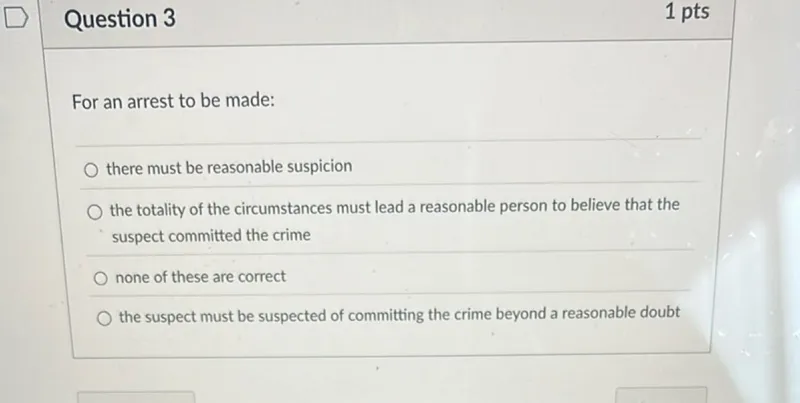Questions: For an arrest to be made: - there must be reasonable suspicion - the totality of the circumstances must lead a reasonable person to believe that the suspect committed the crime - none of these are correct - the suspect must be suspected of committing the crime beyond a reasonable doubt

Transcript text: For an arrest to be made:
- there must be reasonable suspicion
- the totality of the circumstances must lead a reasonable person to believe that the suspect committed the crime
- none of these are correct
- the suspect must be suspected of committing the crime beyond a reasonable doubt





